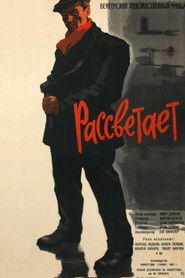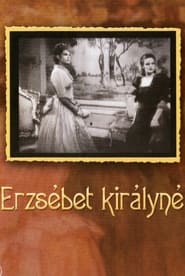detail profile kl c3 a1ri tolnay
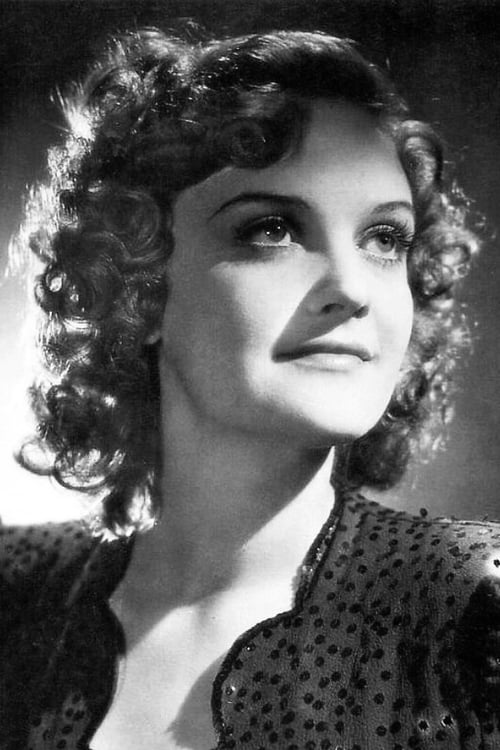
Klári Tolnay
Klári Tolnai
atau dikenal sebagai
Riwayat Hidup
Klári Tolnay (17 July 1914 – 27 October 1998) was a Hungarian actress.
Klári Tolnay (born Rózsi Tolnay) was born on 17 July 1914 in Budapest, as the daughter of István Tolnay and Eleonóra Siess.
She spent her childhood in the small village of Mohora, Nógrád county, on the estate of her father.
Finishing elementary school there, she continued secondary school studies in Balassagyarmat, two years at the school operated by Institutum Beatae Mariae Virginis in Nyíregyháza, finishing high school in Debrecen's School of Business.
Singing and playing music since childhood, she followed the advice of newspaper editor János Bókay, and auditioned herself to prominent actors of the time, Gábor Rajnai, Jenő Heltai, and Sándor Hevesi.
After these early attempts were not followed by desired results, she was mentored by Béla Gaál, thus starting her career as a film actress at the Hunnia Film Studio.
Her first notable role was in Meseautó, after which she was hired by the Vígszínház theatre in 1934, to perform smaller roles.
In 1936 she married Ákos Ráthonyi, a director, giving birth to daughter Zsuzsanna 4 years later.
After World War II ended in 1945, Ákos Ráthonyi left Hungary, with their daughter following after the 1956 revolution.
Leaving the Vígszínház for the Művész Theatre in 1946-7, she met Iván Darvas, whom she later married (but divorced in 1958).
In 1947, together with Gyula Benkő and István Somló, she was appointed as the co-manager of the Vígszínház theatre, where she was a major participant in restoring the institution to its pre-war glory.
After the theatre was disbanded by the government in 1950, she joined the Madách Theatre, where she worked until her death on 27 October 1998.
Description above from the Wikipedia article Klári Tolnay, licensed under CC-BY-SA, full list of contributors on Wikipedia.
Info Pribadi
Peran Yang Di Mainkan Klári Tolnay
 Vili fakes illness so he doesnt...
Vili fakes illness so he doesnt...Willy the Sparrow 1989
Vili fakes illness so he doesn't have to take a math test. Instead, he starts shooting at sparrows from the window with an air rifle. The kindly old lady who feeds the birds turns out to be a real-life fairy who tries to turn Vili into a good boy.
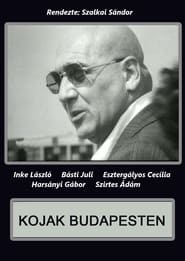 Lt Kojak arrives in Budapest as...
Lt Kojak arrives in Budapest as...Kojak in Budapest 1980
Lt. Kojak arrives in Budapest as a guest speaker for the 'International Crime Writers Conference'. Soon after he starts enjoying the pleasures that the city has to offer, he assists his old friends at the police department with a case. The case involves solving the murder of a noted scientist, unaware that a Mafia hit man and his female companion are targeting him.
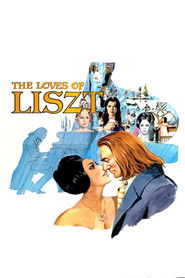 This is a romantic biographical film...
This is a romantic biographical film...Dreams of Love 1970
This is a romantic biographical film about Franz Liszt. In a distinguished saloon of Paris, the unknown composer, Liszt, defeats the renown Thalberg at a piano competition. Through his playing, he wins the favours and later the hand of the countess D'Agoult. A daughter is born in their marriage, Cosima. Liszt is better and better known, Marie introduces him to the circle of artists.
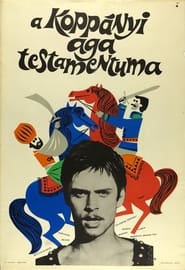 In 1585 the Turks and Vallons are...
In 1585 the Turks and Vallons are...The Aga's Testament 1967
In 1585 the Turks and Vallons are looting the Látrány region.
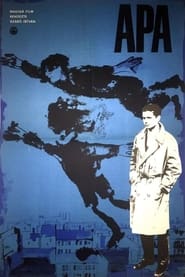 The beginning shows Hungary devastated by...
The beginning shows Hungary devastated by...Father 1966
The beginning shows Hungary devastated by the war and the postwar reconstruction with its communist government. Our hero (played first by Dániel Erdély and later, as a young man, by András Bálint) is clearly determined to find out what he can about his father who died young. All he knows is that he was a doctor and perhaps he was an honored victim of fascism. He never really finds out but his relationship with his mother, his friends and his Jewish girlfriend will make him totally independent of this need to find all about Apa or Father.
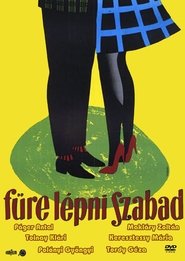 Daddy Krsz the stakhanovist worker complains...
Daddy Krsz the stakhanovist worker complains...Don't Keep Off the Grass 1960
Daddy Kárász, the stakhanovist worker, complains in a television interview about the fact that his family, consisting of many members, cannot get a home on their own. Kéri, the chairman of the local authority, promises to help him on the condition that if he does not, they may move in to his villa at elegant Pasarét. Nothing happens, therefore the Kárász family takes Kéri by his word. From this time on, tumultuous scenes and frequent quarrels take place in the villa between the two families.
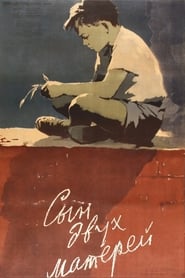 Dani the fewmonthold little boy born...
Dani the fewmonthold little boy born...Dani 1957
Dani, the few-month-old little boy born outside marriage is left by Eszter in the lap of her companion on the train. The widowed Aranka takes him willingly to her. The child is already ten years old and has a good life with Aranka. Then Géza enters their life and he does not welcome the child of someone else.
 The flat of Doctor Bartha is...
The flat of Doctor Bartha is...Tale on the 12 Points 1957
The flat of Doctor Bartha is wetting, the Communal Management Enterprise does not act, the doctor and his wife are at the edge of divorce. Géza would marry his colleague, Kató, but mum is sick, the apartment is small, no money. Uncle Károly is fed up with unsuitable, charlatan business managers. Vali would marry, in order not to live on Titi and Piri any more, but the selected man wants to have a woman with her own apartment. All of them have a chance by the lottery, especially by hitting twelve scores.
 The story which takes place in...
The story which takes place in...Mrs. Déry 1951
The story, which takes place in the reform era, centres around Mrs. Déry, a legendary actress, who, along with her fellow actors and actresses, travels around the country to become the herald of the Hungarian language, performing in villages and towns up and down the land as strolling players, a woman who is not put off by the prospect of starvation and the dearth of a home to return to and security to live in.
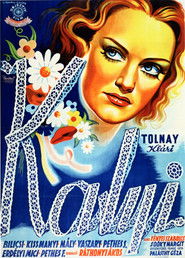 Kat Varga Klri Tolnay is unable...
Kat Varga Klri Tolnay is unable...Katyi 1942
Kató Varga (Klári Tolnay) is unable to play its part in front of the Admissions Committee of the School of Dramatic Art. Geszty (Tivadar Bilicsi), severe President of the Commission maintains that she has no talent for acting and mercilessly tells you will never be an actress. Kató prepares to take revenge and under the false name of Katyi Csiba, dressed as a peasant village, obtains admission to the house Geszty. Turning everything upside down, she makes your life hell.
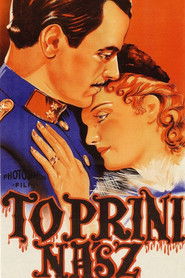 Sent on a spy mission to...
Sent on a spy mission to...Wedding in Toprin 1939
Sent on a spy mission to the estate of Count Toprini, Lieutenant Imre is helped by the count's wife who is unhappy in her marriage.
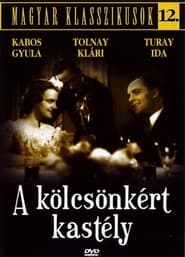 Among the Gruber family the rumor...
Among the Gruber family the rumor...The Borrowed Castle 1937
Among the Gruber family, the rumor spreads like wildfire that their wealthy American relative, Menyhért Gruber, is visiting Hungary with his daughter, Mary. Various plans are devised to exploit the rich relative. The boldest of them all is the plan of Bálint Koltay, who directly pursues Mary's hand. However, the young ones fall in love with each other so deeply that Bálint stands by Mary even when the "wealthy" Gruber informs him that he's bankrupt. At this point, the only thing left to arrange is for Bálint, who poses as a landowner, to actually present a noble castle to his future father-in-law.
 Nightmares submerge into reality and intertwine...
Nightmares submerge into reality and intertwine...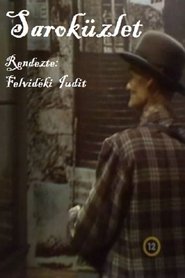
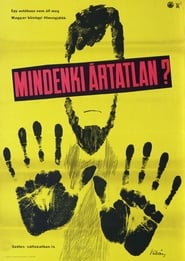 A young woman on board of...
A young woman on board of...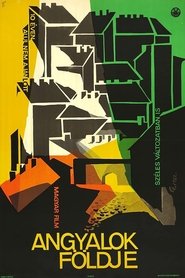 The film is a ballad about...
The film is a ballad about...